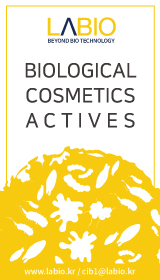
A contribution by Joyce Kwon, chief consultant and CEO of Provision Consulting Group, who is active in the US, has been released through KOTRA regarding the "Cosmetics Regulation Modernization Act" (MoCRA) in the US, which will take effect on December 29th.
The Korea Cosmetics Association (Chairman Suh Kyung-bae) has been providing information to domestic companies through webinars conducted by local experts in the US several times since the establishment of MoCRA in the United States and through the provision of self-acquired and analyzed data.
This article by Joyce Kwon, senior consultant, reflects the perspective of a consulting group operating in the United States, so it can be seen as having a different meaning in its own way.
The editorial office of Cosmorning summarized and organized the contributions of Senior Consultant Joyce Kwon. <Editor's Note>
Outline
According to the U.S. Food and Drug Administration (FDA), the average American consumer uses between 6 and 12 cosmetics per day.
The category of cosmetics is also wider than expected, including △ makeup products △ nail polish △ various beauty products such as shaving cream △ perfume △ facial and body cleansers △ hair care products △ skin care and personal care products such as moisturizers.
As modern people's interest and demand for cosmetics steadily increase, the era has come when Korea's K-beauty is widely known and noticed in the global market.
Let's learn about the new "The Modernization of Cosmetics Regulation Act of 2022 (MoCRA)" that Korean cosmetics companies seeking to enter the US market must be aware of and comply with for success.
In the case of cosmetics, companies were able to voluntarily register and list products through the self-registration regulation 'VCRP' (Voluntary Cosmetic Registration Program). It was also possible to sell products in the US without going through VCRP.
However, it is true that consumers' safety concerns have persisted because this regulatory approach severely limits cosmetics manufacturers' responsibility for product safety and regulatory compliance.
Starting with the enactment of MoCRA, a new cosmetics-related regulation, the FDA is preparing to solve the limitations and problems of existing cosmetics regulations and to ensure consumer safety.
MoCRA is also meaningful in that it is the largest expansion of the US FDA's authority for cosmetics regulation since the Federal Food, Drug, and Cosmetic Act was enacted in 1938.
Highlights of the Cosmetics Regulation Modernization Act (MoCRA)
The MoCRA, which was enacted in December last year, will officially take effect on December 29th. The regulations related to MoCRA announced so far are as follows.
■ Mandatory Facility Registration and Product Listing (including ingredients)
1) Facility Registration
Facility registration is required for all manufacturing and processing facilities located in the United States or abroad. The renewal cycle is 2 years. Existing facilities must register by December 29, 2023. New facilities fall under the case of owning or operating a manufacturing/processing facility for the first time after December 29, 2023, and are obliged to register the facility within 60 days of the first manufacturing/processing date. At the same time, any changes in registration must be reported to FDA within 60 days.
In the case of a contract manufacturer that manufactures products for multiple companies (OEM/ODM from the perspective of Korea), only one registration procedure is required, and renewal is also required every two years.
When registering a facility, △ Facility name, address, email address, phone number △ US agent information (only for overseas facilities) △ Previously issued cosmetics facility registration number (if any) △ Manufacturing or process The brand name of all products passed through, the category of the product, and the information of the person in charge of each product are required.
2) Product Listing
Listings are required for each product, including information on ingredients and manufacturers, and this needs to be updated every year. For existing products, if the product was sold before December 29, 2023, the product listing must be finalized before December 29, 2023.
For new products that are marketed for the first time after December 29, 2023, product listing must be carried out within 120 days of marketing. Product listing can be done in conjunction with the facility registration process, but can be done separately.
When listing products, △ Facility registration number of each facility where the product is manufactured or processed △ Product name and person in charge △ Product category △ All ingredients of the product including fragrance, taste or color △ Product listing previously issued by FDA number (if any), etc.
■ Product Safety Substantiation
Of course, it is necessary to be able to sufficiently prove the safety of products sold, and to preserve and manage the data proving this. If adequate evidence is not identified or sufficient evidence is not available, the product will be considered defective.
■ Labeling Requirements
Contact information (domestic address, phone number, or electronic contact) to receive reports on side effects must be included in the labeling, and indication of the ingredient Fragrance Allergen (allergen-inducing fragrance) is also mandatory. For functional products for professionals, the phrase 'Only licensed professionals may use the product' must be specified.
■ Manufacturing and quality control (GMP)
The FDA currently requires compliance with national and international standards and consistent GMP (Good Manufacturing Practice) regulations. Because FDA has access to the records it needs to inspect a facility and verify compliance with GMP, the facility should be vigilant in maintaining and managing all relevant records.
■ Adverse Event Report and Keeping
FDA has access to the records of a product or ingredient if it determines that the product or ingredient is defective or poses a health threat. Companies are also obliged to submit to the FDA a copy of the cosmetic label or package and a 'Serious Adverse Event' report within 15 business days of becoming aware of an adverse event.
■ Recall
If the product falls under defective or misbranding and it is judged that serious side effects may occur, the FDA may request a voluntary recall of the product. there is.
■ Contains talc and perfluorinated compounds (Talc and PFAS)
Because talc can be contaminated with asbestos, a known carcinogen, during the collection process, the FDA plans to establish and publish a standard test method for detecting asbestos components in talc-containing products.
The FDA is also preparing to issue a public report on the safety of cosmetics containing perfluorinated compounds (PFAS).
Exemption
■ Small Business Exceptions
Small businesses that have averaged less than $1 million in annual cosmetic product sales in the United States over the past three years are exempt from facility registration, product listing, and GMP regulations.
However , △ Cosmetic products that regularly come into contact with mucus membrane of the eye under conditions of use that are customary or usual △ Cosmetic products that are injected ) △ Cosmetic products that are intended for internal use △ Cosmetic products that are intended to alter appearance for more than 24 hours if not directly removed by the consumer (Cosmetic products that are intended to alter appearance for more than 24 hours under conditions of use that are customary or usual and removal by the consumer is not part of such conditions of use that are customary or usual) are not exempt from the regulation.
■ Companies that are not subject to MoCRA regulation
△ Beauty shops and beauty salons (exempt only if cosmetics are not manufactured or processed in those places) △ Cosmetics retailers, including individual sellers, direct sellers, retail distribution facilities, and pharmacies (these companies manufacture or process their own cosmetics) △ Hospitals, doctors' offices, and medical clinics △ Public health organizations and other non-profit organizations that provide cosmetics directly to consumers △ Businesses that provide free cosmetics as ancillary services to customers (hotels Airlines, etc.) △ Exhibitions or other places that provide cosmetic samples free of charge △ Companies that manufacture or process cosmetics only for research or evaluation purposes (for production testing and do not provide retail sales) △ For cosmetic products, either of the following Businesses performing only one or more tasks: labeling, relabeling, packaging, repackaging, holding and distribution (however, packaging and repackaging does not include 'filling cosmetic containers with cosmetics')
Conclusion
Currently, the FDA has suspended the receipt and processing of VCRP for cosmetic facilities and products. The reason for this is that we are building a system that allows companies to more conveniently carry out procedures such as facility registration and product listing required by MoCRA.
As soon as related updates are announced, it is expected that facility registration and product listing procedures will be officially available.
For cosmetics companies planning to enter the US market, it is judged that the first step to enter the US market with the most efficiency is to understand the MoCRA regulation in advance and make sufficient preparations through consultations with professional organizations. <Organization and Cosmorning editorial office>





